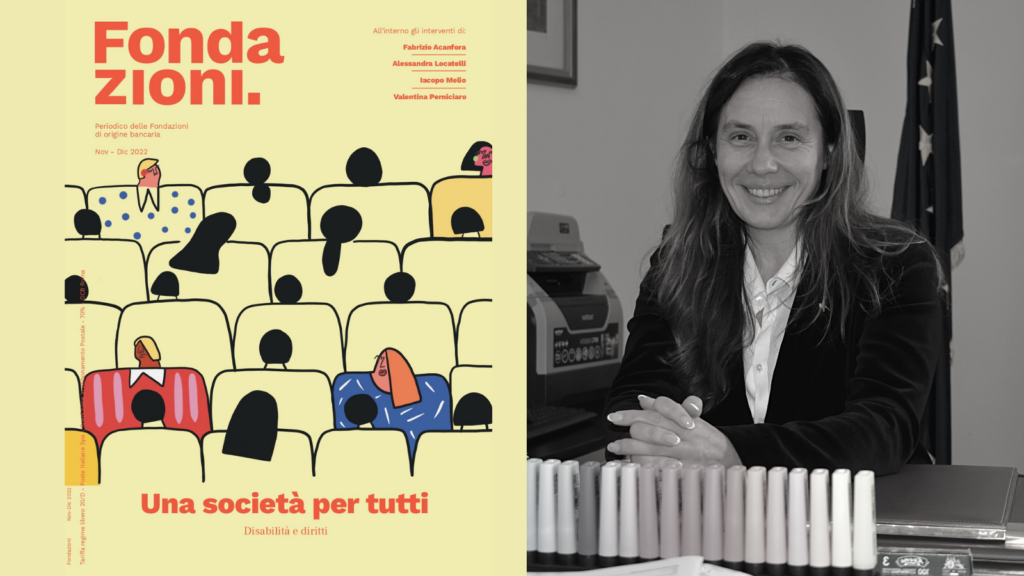Leilani Farha is the former UN Special Rapporteur on the Right to Housing and Global Director of The Shift. Her work is animated by the principle that housing is a social good, not a commodity. Leilani has helped develop global human rights standards on the right to housing, including through her topical reports on homelessness, the financialization of housing, informal settlements, rights-based housing strategies, and the first UN Guidelines for the implementation of the right to housing. She is the central character in the documentary PUSH regarding the financialization of housing, screening around the world. Leilani Launched The Shift in 2017 with the UN Office of the High Commissioner for Human Rights and United Cities and Local Government.
How do you define “Equality”?
When I think about an equal world, I think of a world where the people affected by some decision are included in the process of deciding. We do not live in this world now. We should create a society where marginalized individuals and groups can be very active participants in our democracy in a meaningful way. I am talking about is a world where these people and groups actually run and make it possible to live in our cities.
Can we fight for equality without a fair, global, affordable housing system?
We must understand that poor housing conditions are not a consequence of inequality. They are the driving of inequality. There is a strong connection between housing and equality, which is one of the things that I am trying to convey in my work. Even the institutional actors on the finance side are starting to understand there is gross inequality in most societies, but what they are failing to do is to recognize the link with global finance in real estate and housing and inequality. We need to understand the relationship between real estate, poor housing conditions and growing inequality.
When it comes to discussing homelessness, unemployment or poverty, there is still a strong belief that the individual is responsible for his/her/their condition. How can we contribute to change this narrative?
We need to embrace a Human Rights point of view at housing because it completely shifts that understanding, and it says that the causes of housing disadvantage and equality are structural. Until we address the structural causes, there will be no answer for homelessness. The reason why the Human Rights Framework is so important is that it understands that when someone is living in homelessness, there is a failure of governments to implement the right to housing. We need to create a system where laws and decisions are oriented to eliminate homelessness and not the contrary. We can predict homelessness. Let’s take the example of my country: Canada. In 1996, in the province that I live in, the provincial government decided to reduce welfare entitlements by 22%. All the advocates, including me, were saying that it was going to lead to homelessness. In five years from then, we did see a huge increase in homelessness. We can predict the structural costs, we can say, if you take this decision, that is not a human rights compliant decision, it will lead to increased homelessness. If we decide that the goal is to ensure that everyone is adequately housed, every decision has to meet that goal. Moreover, the human rights framework also allows us to understand that the individual is a human rights holder and not a recipient of charity anymore.
What impact does the right to housing have on the wellbeing of local communities?
Let’s see what happens today. To tackle homelessness we use emergency shelters. If we look at the cost of running shelters, it is much more expensive than it would be to pay average rent for the population that use the shelters. Someone could point out that some of these people do not need only a house but also social support, childcare, training. It is true but when a person is using emergency health care services, it is more expensive for the state than hiring social workers and letting community health clinics to administer the programs that people living in homelessness need. Finally yet importantly, we often use police to deal with people living in homelessness. The criminal justice system itself is very expensive and overburdened; do we really need to criminalize a set of people who are simply trying to survive? Probably not. Therefore, again, if we provide people with access to decent, adequate housing, and the social supports they need, it would be economically efficient. We need also to look at the adequacy of housing itself. The EU has decided to finance states to make housing, more energy-efficient because it will save the planet. That just shows the efficiency in government stepping in, and ensuring actual adequate housing. It would not just benefit the climate, which is an efficient thing, but also the healthcare systems, which is also an efficiency issue.
In this last year, we asked the whole world to stay at home, knowing that many people do not have one. In this crucial moment, are we moving forward in the fight for housing as a human right?
The impact was not what I hoped it would be. It was clear as soon as the pandemic hit that many people were living in homelessness or grossly inadequate housing in informal settlements. That was putting the entire population at risk and it was easy to understand in the first phase. The problem was that only short-term solutions were given. What are we doing now to house these people in a long term, sustainable way? If we think about informal settlements in the global south, they are like little cities themselves, they could not just shut down. Governments in the global south knew that. Informal settlements need to be upgraded, potable drinking water needs to be in every community, the adequacy of the homes needs to be improved, roads need to be paved, etc. Where are those conversations now?
You Launched “The Shift” in 2017 can you tell us about the work you are doing related to the right to housing?
It all started after I had finished my appointment as rapporteur in 2017 but we actually became a more formal entity in 2020, right in the middle of the pandemic. After my experience as rapporteur, it was clear to me that there was a real need for strong advocacy at the global level on the right to housing. Furthermore, the Special Rapporteur on the right to adequate housing is not a job for one person and can only do so much. That is why we decided to launch an entity to grow a global movement. One of the main areas that we have been focused on is working with city governments, particularly in Canada, as it happened because I was stuck at home in Canada. I could see that cities in Canada were struggling with the pandemic. Homeless encampments were starting to emerge in parks since they had to downsize shelters because of the necessity of social distancing. Sometimes shelters were even closing because they were afraid of COVID growing exponentially in the shelter system. Therefore, I started to work with cities with my team. We opened up a round table for discussion with 14 different cities, now there are 16 or 18 cities across the country. Everyone is at the table, and very interested in looking at the issue from a different framework, to address the problems that they are seeing. So we are looking at how could human rights be incorporated into city governance, and then help solve the housing crisis at the local level. It is exciting work, because, since the beginning, we have had interest from a variety of different places. Some cities in the US are interested in starting a similar project, we have had an interest in Catalonia, in Spain and I would love to do something like this in Italy. We are trying to allow cities to exchange information, and then we are also bringing international expertise to the cities. For instance, if someone is interested in the “Housing First” approach, I have contacts in Finland and I can bring them to the table. We examine laws and policies in different cities to see if they are human rights compliant. Beyond that, we have been keeping our ear to the ground and writing letters of concern to government officials, when we hear of something that is not working. We use the film “Push” (https://www.pushthefilm.com/) and the “Pushback Talks” (https://pushbacktalks.buzzsprout.com/1189295) to keep the attention on the topic because so much of this is about creating a narrative and creating dialogue.



